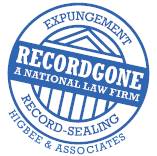About Expungement
Expungement is the legal procedure used to destroy or seal the records of a case. The exact definition of expungement varies greatly among states.
Each state offers different types of record clearing or expungement relief, and each of those legal procedures can use different terminology and have different effects on the criminal record.
Examples of record clearing services include: expungement, record sealing, setting aside a conviction, vacating a conviction, and orders of non-disclosure. To get specific expungement information for your state, please click here or choose the state in which you have a record from the drop down menu above.
The Expungement Process
The process, much like the laws and terminology, differs widely among states. The process will generally involve initial research to obtain the court documents, which will contain the information required on the expungement petition. That information is then included in the application or petition, which is filed, along with any supporting documents required by the court, in the county in which the case occurred.
The petition is usually also submitted to the district attorney or prosecutor’s office for their review; they are provided time to review and respond to the petition. Once the court receives the petition, they will either set a hearing date or submit the petition to the judge for a decision to be made.
The timeframe for the entire expungement process also differs from court to court, ranging anywhere from 2-6 months on average. To get a more accurate estimate on how long your expungement may take, please take our confidential eligibility test and review the information on the service for which you are eligible.
Effects of an Expungement
After your arrest or conviction is expunged, sealed, set aside, or vacated, you can feel more confident applying for jobs or housing. The law varies from state to state, but generally, you do not have to disclose your expunged conviction when applying for a job, to a school, or for housing. An expungement is a great way to put your past behind you and open up many opportunities, allowing you to focus on the future.
Depending on the laws in your state, the arrest may remain on your record and appear on higher-level background checks that require fingerprinting; in those instances, the case would appear as dismissed, because the conviction (finding of guilt) has been removed from your record.
In other states, an expungement is a complete removal of the case from your criminal record and the records of the case are destroyed. Background checks that search for convictions (the type performed by many employers) normally will not reveal an expunged case, because the case has either been completely removed from your record or because it is no longer considered a conviction
Can I Get an Expungement?
Eligibility requirements for expungement vary widely among states. However, some felony and misdemeanor offenses that may be eligible to be expunged or sealed include:






